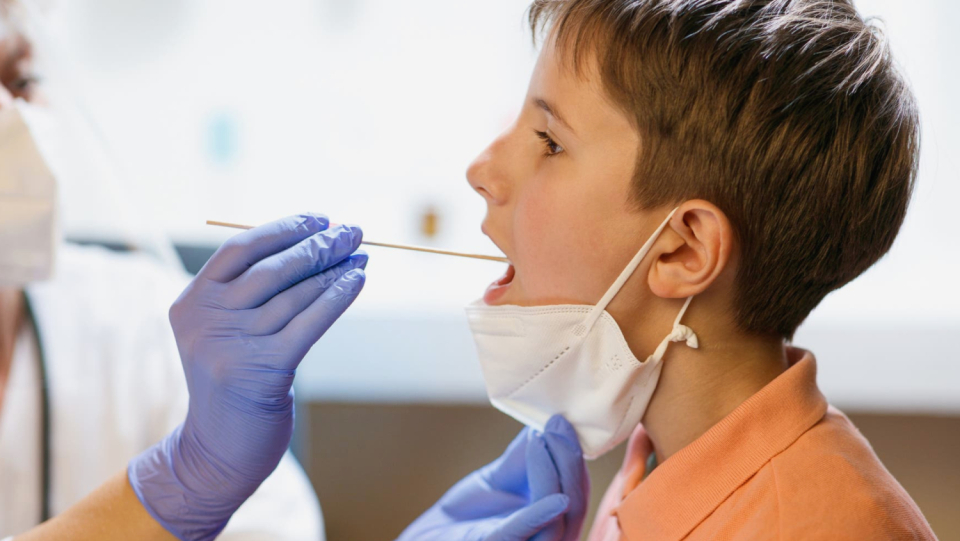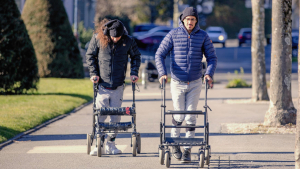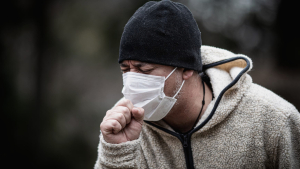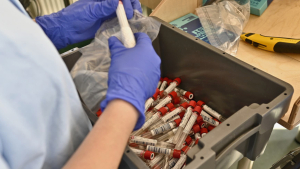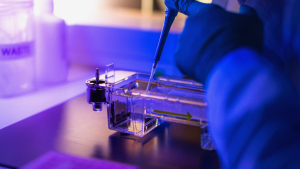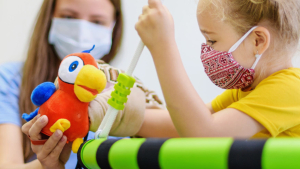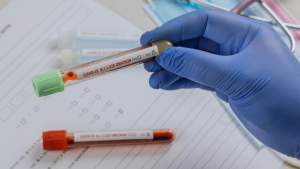Antigen fast tests do not reliably strike in children who are infected with the coronavirus according to a PCR test: the infections are only recognized in just under two out of three cases. This is shown by an evaluation of the Institute for Quality and Economics in Health Care (IQWiG) over 17 studies that have compared antigen fast tests with PCR tests, the gold standard in covid diagnostics.
As the research group led by Naomi Fujita-Rohwerder reports, a total of eight different rapid tests were used in the studies. 6355 children were tested, most of them from the USA and Spain. Depending on the study, between 4 and 50 percent of the children were positive, according to the PCR test.
The good news: about 99 percent of the uninfected children were recognized as such by the rapid tests. The bad news: of the infected children with symptoms, the tests detected only about 72 percent on average (the only German study also reached this value). Of the infected children without symptoms, only 56 percent were even detected.
No test met the minimum requirements of the World Health Organization or the US drug authority FDA, writes the IQWiG team. From May 2022, antigen tests for their admission of independent laboratories are to be checked. At the moment, the manufacturers can certify their tests themselves that they recognize a virus available. However, the data would often be "over -optimistic" and do not correspond to the practice, say the researchers.
However, the tests from the manufacturer side are only intended for symptomatic cases. Because they usually have a higher viral load, and then the sensitivity – the proportion of detected infections – is higher. But a threshold value for whether a person is infectious or not, there is not yet. The risk of infection posed by the infected children in the present study is therefore not known.
The measured sensitivity also depends on other factors, including professional sampling. In the present studies, rehearsals in hospitals and community centers were taken, except for a study by trained staff. The group therefore strongly recommends determining the hit rate for self -testing.
Rapid tests are ineffective for excluding infection.
The researchers' conclusion: rapid antigen tests could nevertheless be a good tool for detecting an infection with Sars-Cov2 - but not for reliably excluding it. This would require a sensitivity of 97 percent. Whether a lower hit rate can be compensated by repeated testing is still a matter of controversy.
The small sample of eight tests does not say anything about the more than 500 other anti -tiger tests that are on the market in the EU, the authors of the IQWiG clear. The rapid tests differ significantly in how well they recognize infected samples. Likewise, the present results could not be transferred to newer variants: The data of the 17 studies mainly came from autumn and winter 2020/21.







